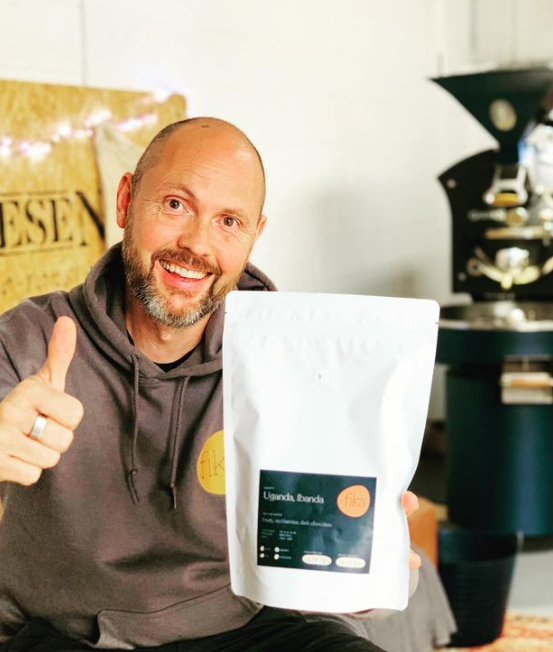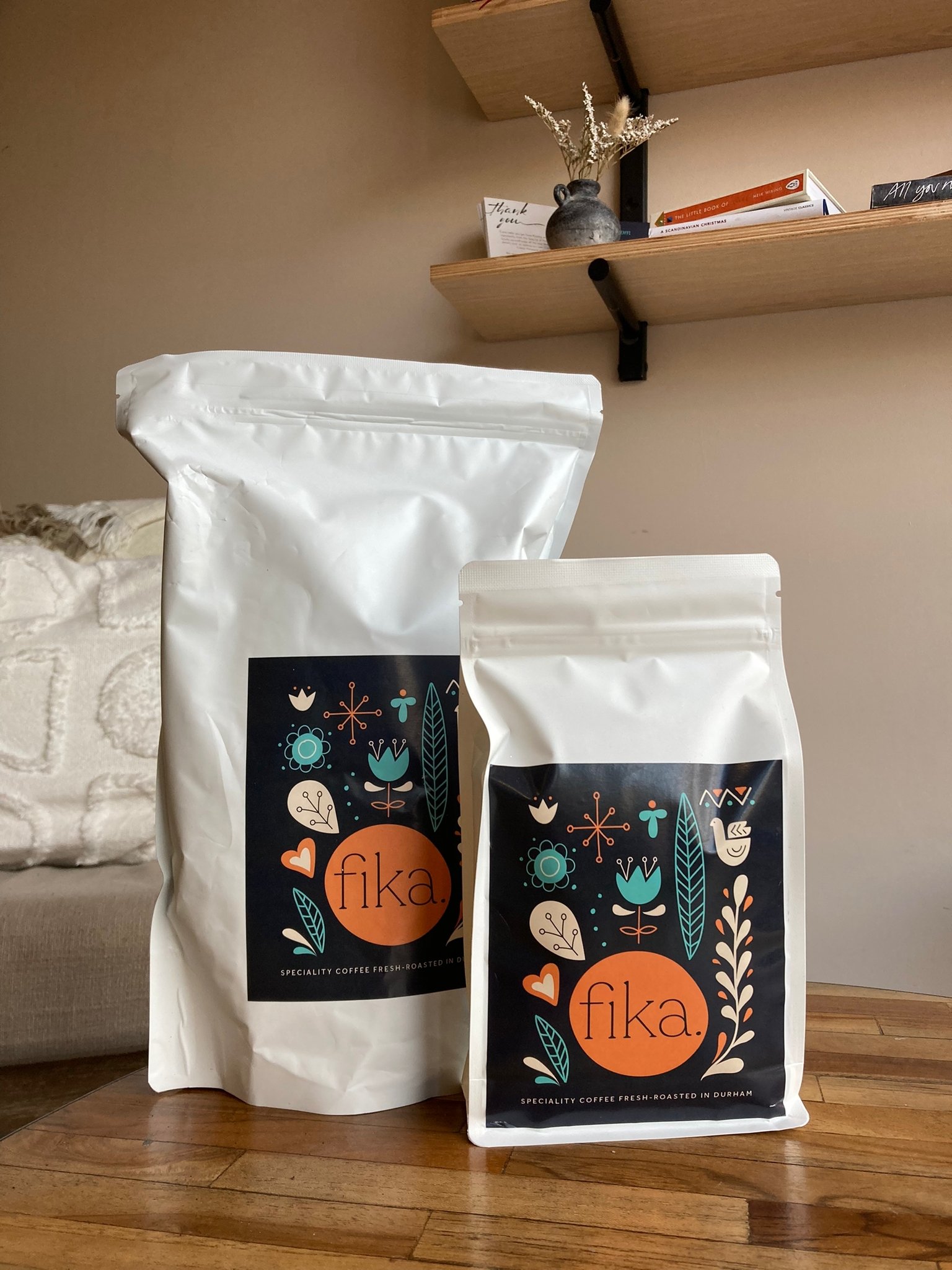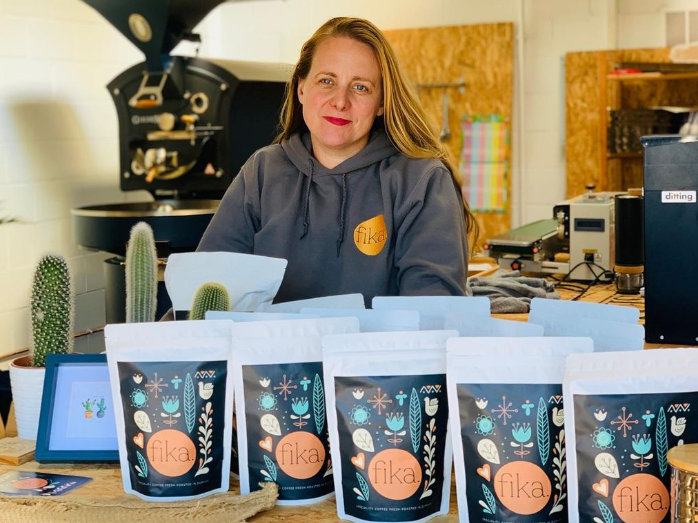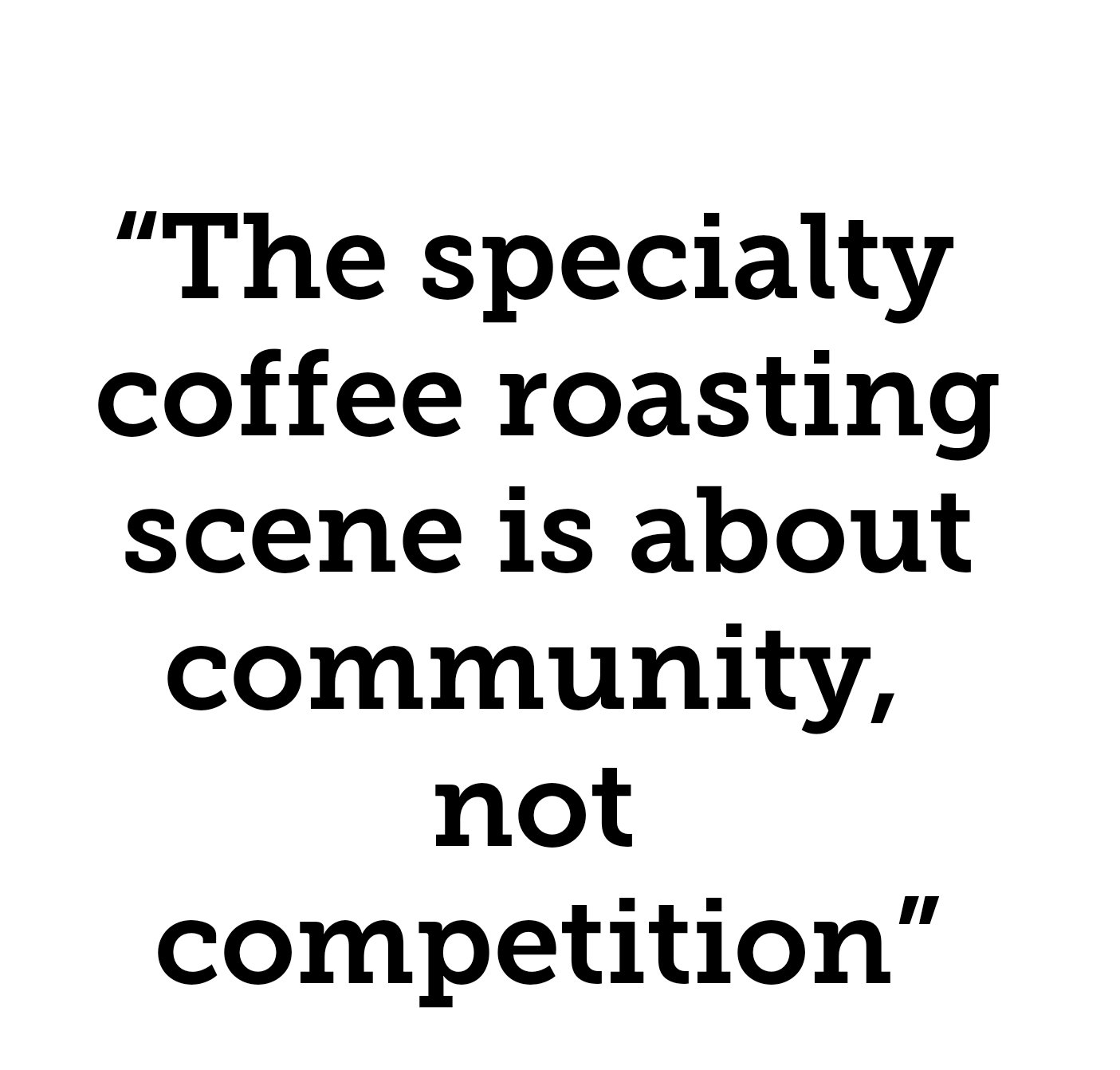Beans means Fika: the world of speciality coffee roasting
Perhaps a bit more informal than traditional British afternoon tea is the Swedish custom of Fika (fee-kuh) where friends, family or even colleagues get together for a hot coffee, usually accompanied by a sweet treat, like one of our traditional Swedish cinnamon buns.
However, Fika is much more than your average coffee break; it's a ritual promoting well-being, productivity and self-care. It gives people the opportunity to make time for friends and meet new people.
This sense of community is what first inspired this week’s blog guest to venture out into the world of speciality coffee roasting. Matt is a coffee roasting specialist from Fika, a Durham-based company that supplies us with our unique blend used in every cup of Koselig coffee.
We chat with Matt about how he and his business partner Lynn were inspired to start Fika based on their experiences in Melbourne and how the new ‘fourth wave’ coffee movement is bringing together quality products and social consciousness.
Q: How did the concept of ‘Fika’ inspire you to name the brand?
We met a Swedish couple during our travels around Cambodia and Thailand who introduced us to the custom of Fika. We found the connection between coffee, socialising and relaxing very interesting and decided it would be a unique name for our speciality roast. We didn’t really want to name the company after a location, although we are based in Durham, but rather a feeling associated with our product.
Q: What experience first attracted you to the world of specialty coffee roasting?
Speciality coffee roasting is very different and not as well-established as traditional roasting. Myself and my partner, Lynn, were not working in the coffee industry when we visited Australia and initially our interest in specialty coffee roasting began after a panic that we wouldn’t be able to have our favourite coffee after we returned home! The Aussie approach to coffee roasting proved interesting to us however, and we began barista training as a hobby.
After visiting a café in Manchester which had an in-house coffee roaster, we became interested in the actual process of roasting. Eventually I got in contact with Rounton coffee roasters and began training with them.
Q: What about the Australian approach was more appealing than the traditional European style?
Speciality coffee roasting is all about highlighting flavour - this differs greatly from the traditional Italian approach, which is solely about producing the darkest roast and providing that bitter flavour which is so popular in the European market.
Speciality roasting focuses on a more medium roast, which allows for more flavours to come through, hence why specialty roasts have unique flavours, for example the chocolate and berry flavoured roast used in Koselig. This process of roasting is more scientific and tricky to get right.
The Australian approach also pushes the message that the flavour of the roast should play more of an important role in the quality and not just the strength. The unique flavour we give to our coffee is what we consider to be the most significant aspect of our roasting process.
Video: Fika in action at Koselig
Q: What impact did the pandemic have on the business?
A surprisingly positive one, if we had started before the pandemic hit it would have probably been a different story. We started Fika during the first lockdown. With everyone at home spending more time shopping for coffee, it meant we were able to promote our roasts online. Social media posts about our coffee also allowed our sales to grow. As restrictions were relaxed, word-of-mouth became a game-changer for us.
Lynn worked in marketing and, through her connections to a Scottish media management company, our product marketing, image and design have all been developed further. Although we initially just wanted to get through Covid, we are now supplying more businesses than ever!
Q: How do you select the farmers who provide their coffee beans?
Sourcing as directly as possible is really important, not only in the world of specialty coffee roasting but to myself and Lynn personally. I am in good contact with the nephew of a Brazilian coffee farmer and he brings their family's coffee beans over to the UK market to sell. It is important that we know our farmers, their community, how much they are being paid and how they are treated.
This differs from bigger, chain coffee companies that don’t look into these aspects. In the future, we would like to hire more people to explore this for the company as we expand. Traceability and ethics are just as important an aspect of specialty coffee roasting as the final product.
Following the 2021 hurricane in East Timor, we donated a percentage of our sales made from our East Timor coffee beans to the relief efforts. Community in general is a really big thing for us at Fika, we see the specialty coffee roasting scene as being about community, not competition.
Q: What is the most difficult aspect of coffee roasting and supplying?
In my opinion, the hardest part is the farmers job. In order for the coffee to be classed as a ‘specialty grade’ it takes an incredible amount of work, so the farmers work especially hard.
Q: Why are Koselig and Fika a good match?
We described Koselig as being a ‘specialty bakery’ - just like Fika is a specialty roaster. Both our businesses are dedicated to providing high quality products, as well as the entire ethos surrounding relaxing and enjoying coffee.
Our blend, which was a collaboration between myself and David, is unique to the bakery. I’m desperate for a Koselig to open in Durham!
Q: Finally, what is next for Fika?
Coffee roasting is of course our major interest, however, we are also keen to build an educational side to the business which results in us being able to train our customers how to roast and serve coffee. We’d like to offer this in our roastery as well as the cafés we supply.
We are also looking to expand our staff in the future as the company continues to grow and, of course, create product merchandise such as bags and t-shirts, similar to those at Koselig.
Find Fika’s products on their website and follow them on social media: Facebook, Instagram
Edited by Rebecca Phillips






